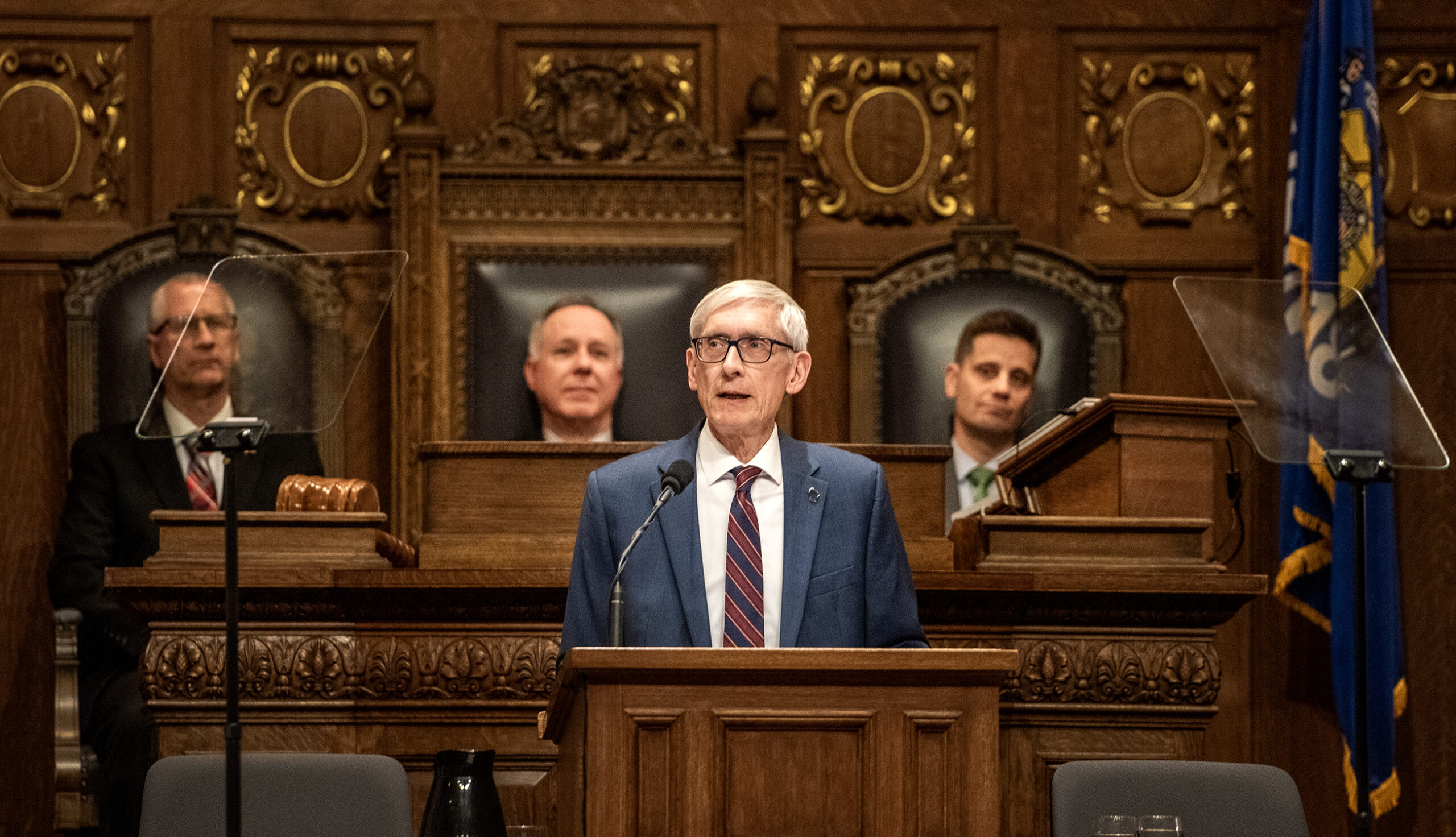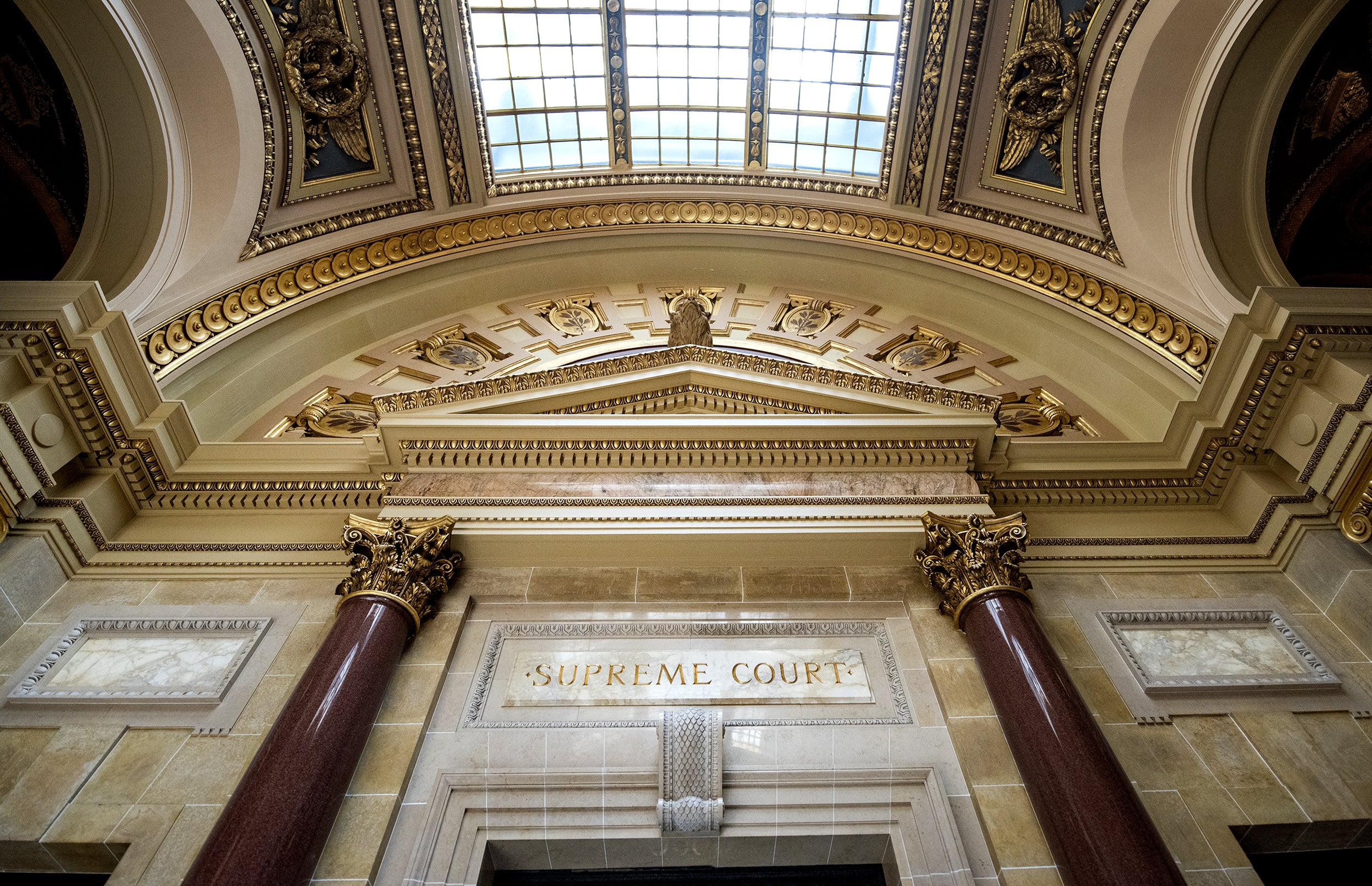A lawsuit filed by Gov. Tony Evers against Republican lawmakers who blocked pay raises for university employees and funding for conservation projects has been accepted by the Wisconsin Supreme Court.
An order granting Evers’ request that the court take up the lawsuit was issued by the court’s liberal justices in a 4-3 decision Friday afternoon. The governor sued Republican leaders in the state Assembly and Senate in October because committees they chair withheld money that was contained in the state budget, which passed in July with bipartisan support.
Evers argued the leaders, through their committees, were “unconstitutionally and unlawfully obstructing basic government functions” by blocking money that was already approved.
The money was slated to go toward cost-of-living raises to around 34,000 employees at the Universities of Wisconsin and conservation projects via the state’s Knowles-Nelson Stewardship Program.
News with a little more humanity
WPR’s “Wisconsin Today” newsletter keeps you connected to the state you love without feeling overwhelmed. No paywall. No agenda. No corporate filter.
The pay raises were scheduled to go into effect July 1, but were held up by state Assembly Speaker Robin Vos, R-Rochester, who co-chairs the Legislature’s Joint Committee on Employee Relations. Vos vowed to withhold the money until state universities eliminated diversity, equity and inclusion staff and programs, known as DEI.
A compromise was struck between Vos and the UW System Board of Regents. Under the deal, lawmakers agreed to release around $800 million for the raises and approve building projects, including a UW-Madison engineering building rejected by Republicans earlier that year.
Evers’ lawsuit also took issue with other committee votes.
In April, the Legislature’s powerful Joint Finance Committee blocked $4 million in the Knowles-Nelson Stewardship Program fund from going toward the purchase of 70,000 acres east of Rhinelander to conserve the Pelican River Forest in northern Wisconsin. In late January, Evers secured $4 million in federal grant funding to support the Pelican River project, which allowed it to move forward despite Republican objections.
The court’s liberal majority agreed to immediately take up Evers’ claim that the committee blockades amounted to “legislative vetoes” violate the the separation of powers in the Wisconsin Constitution by allowing the legislative branch to alter “the scope of the executive branch’s discretion.”
The majority held off on taking up two other claims raised by Evers’ lawsuit, with the caveat they could decide those at a later date.
In a statement issued after the court’s announcement, state Attorney General Josh Kaul called the state constitution’s separation of powers principle “foundational to our system of government.”
“That principle, which guards against the concentration of governmental power, is inconsistent with permitting legislative committees to exercise a veto over executive branch actions like DNR’s awarding of funds for conservation projects,” Kaul said. “We look forward to working to vindicate that principle before the Wisconsin Supreme Court.”
The court’s conservatives dissented, accusing their liberal colleagues of practicing politics from the bench.
Conservative Justice Rebecca Bradley wrote that the “new majority has destroyed the integrity of the Wisconsin Supreme Court to advance its partisan agenda.”
“When the majority’s political allies say jump, the new majority responds: ‘How high?’” she wrote.
Bradley said the Joint Finance Committee “has reviewed gubernatorial appropriations under the Knowles-Nelson Stewardship Program for more than 15 years.”
“The Governor suddenly asserts this legislative oversight of appropriations under the Program violates the separation of powers doctrine and urgently warrants this court invoking its original jurisdiction,” Bradley said. “The timing is no coincidence; the Governor knows he has a friendly foursome standing by to do his bidding.”
In a separate dissent, conservative Justice Brian Hagedorn said Evers’ lawsuit “raises substantial questions about the proper roles of the executive and legislative branches” under the state constitution.
“A decision in this case could occasion a historic shift—both in the operation of state government, and in how this court interprets the boundary lines between the branches of government,” Hagedorn said.
He said courts should exercise “judicial humility” and play a “modest role” in the constitutional order. Hagedorn said the Supreme Court taking the case before it goes through lower courts doesn’t allow it to “mature through the normal process.”
“The court today … does not see the prudence of patience and humility,” Hagedorn said. “Instead, it charges onward, intent on deciding this case before the term’s end.”
The order from the court’s majority gives parties in the lawsuit, which now include the Legislature and six Republican committee chairs, 20 days to file legal briefs. Oral arguments have been scheduled for April 17.
Editors note: Wisconsin Public Radio staff are employees of University of Wisconsin-Madison
Wisconsin Public Radio, © Copyright 2025, Board of Regents of the University of Wisconsin System and Wisconsin Educational Communications Board.







